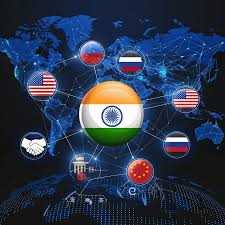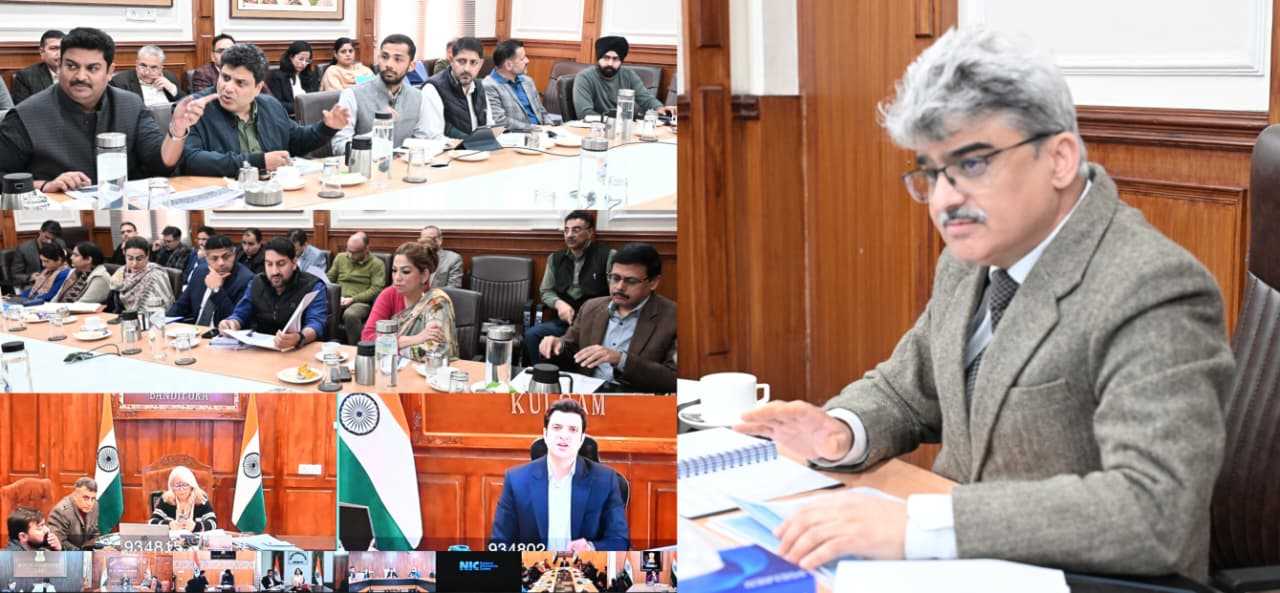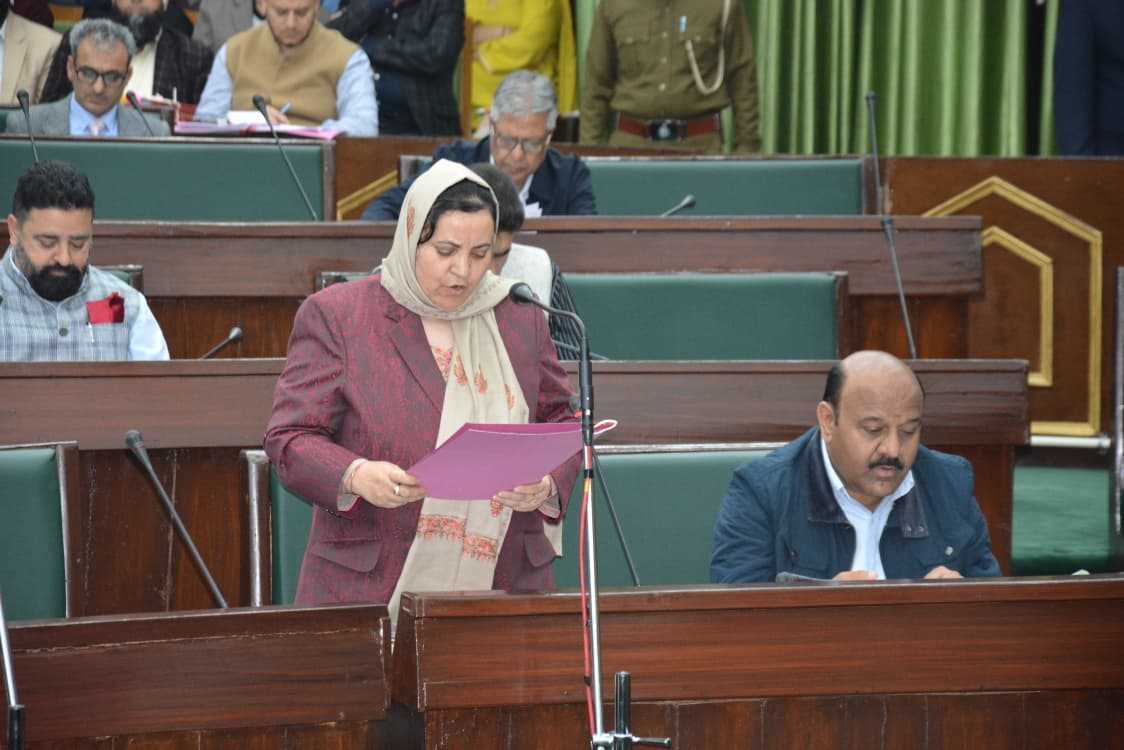
Strengthening its global role through dialogue and collaboration, India addresses economic, security, and development challenges while balancing regional and international partnerships
India’s foreign policy combines tradition, pragmatism and vision. In a world that is increasingly marked by shifting alliances and growing tensions, India does not rigidly pursue alignment with any power formation, but instead pursues a policy of strategic independence. By continuing to cultivate key and diverse relationships with the United States, Russia, the European Union, and its regional partners in Asia, India is not only responding to global phenomena but creating them.
Since gaining independence in 1947, the country has not entered into any formal alliances. The Non-Aligned Movement of Jawaharlal Nehru was not only a Cold War necessity; it was a statement conveying India's own way of doing diplomacy. It is true that the world has changed radically, but independence remains the basis of Indian foreign policy. Today's independence has become multi-alignment, which is a new and flexible form of non-alignment that allows the country to partner with multiple powers while advancing India's national interests.
Prime Minister Narendra Modi has reinforced this philosophy. He chooses the sovereignty of India over everything else. India is not a puppet of any nation. From the United States to Russia, Israel to Palestine, and China to Bangladesh, India engages with all, proving that friendship does not require alignment and cooperation need not come at the cost of independence.
India's relationship with the U.S. is stronger than ever with expanding defence cooperation through joint military exercises like Yudh Abhyas 2025 in Alaska that address high-altitude warfare, unmanned aerial systems, heliborne operations and electronic warfare. Tech partnerships in semiconductors, space exploration and clean energy, are also progressing through the U.S.–India Initiative on Critical and Emerging Technologies. Russia continues to be a dependable friend, with increases in defence and energy cooperation and record levels of crude oil imports, all grounded in national interest. India’s relationship with the EU is perhaps equally important and negotiations are underway for a comprehensive Free Trade Agreement.
Current considerations for a Free Trade Agreement reflect similar interests in digital innovation, renewable energy, and green growth. By cooperating on global challenges such as climate change and cybersecurity, India and the EU underscore the potential of partnerships built on mutual respect.
In Asia, India's guidance is illustrated by its Neighbourhood First and Act East strategies. It promotes connectivity through initiatives like the India-Myanmar-Thailand Trilateral Highway, partners with ASEAN to improve regional trade, and collaborates with Japan and Australia to advance a free and open Indo-Pacific. With China, even amidst ongoing border disputes, India keeps channels of dialogue open, understanding the necessity of coexistence with the other major Asian power. While the United States remains an important partner, New Delhi's opening widens beyond an American frame. Russia, the EU, Japan, China, and Global South stakeholders are critical components of India's diplomatic network. India vigorously pushes back against protectionist trade measures that undermine its economic interests, but remains open to the future of US–China relations, establishing itself as a stable interlocutor amidst great power competition. India focuses on autonomy, not dependency, ensuring that decisions align solely with national priorities.
India's involvement goes beyond affairs of power. During its G20 presidency in 2023, India emphasized the urgencies of the Global South, pushing issues of food security, energy access, and climate finance into the international agenda. The International Solar Alliance, Vaccine Maitri and the COVID-19 vaccine rollout are examples of India's commitment to equity development and humanitarian assistance. India's eagerness to share technology, provide disaster assistance and advocate for developing countries will only strengthen India's positioning as a country committed to the rise of others, rather than dominion over them.
A diversified foreign policy contributes directly to India's domestic objectives. Collaborations with the US, EU, Japan, and Israel provide cutting-edge technology in 5G, AI, and space exploration. Energy security is also strengthened by sourcing oil from Russia, natural gas from the Middle East, and securing investments in renewable energy from Europe and North America.
India believes in dialogue over division. Whether in BRICS, the Quad, the United Nations, or the Shanghai Cooperation Organisation, it promotes cooperation among nations with diverse perspectives. By maintaining communication with Washington and Moscow, Tehran and Riyadh, Beijing and Tokyo, India proves that it is a bridge-builder capable of easing tensions and fostering understanding. Its balanced stance on the Russia-Ukraine conflict, calling for an end to violence while continuing humanitarian assistance reflects this commitment to diplomacy over confrontation.
In the last six months alone, India has deepened ties with the United States without isolating Russia, advanced trade talks with the European Union while maintaining its position at the WTO, engaged with China without compromising on Tibet, and led the Global South without echoing Beijing. The world isn’t tilting East or West anymore; it is turning towards India.
For those wanting to deep dive into this vision, a conversation between former Foreign Secretary Nirupama Rao and journalist Ravi Agrawal on Foreign Policy explores how India balances its relations with the U.S., China, Russia, and others, always on its own terms. Their conversation brings forth an essential truth: India’s rise as a global power will be shaped not by the blocs it plays with, but by the bridges it builds.
India’s message to the world is simple: it will be independent, sovereign, and open to all, and as it shapes a future where dialogue, not hierarchy, defines the global order. By not sticking to a strict alignment with any power bloc, India is not simply balancing powers, it is becoming one.
Email:-------------------rakshandagul629@gmail.com


Strengthening its global role through dialogue and collaboration, India addresses economic, security, and development challenges while balancing regional and international partnerships
India’s foreign policy combines tradition, pragmatism and vision. In a world that is increasingly marked by shifting alliances and growing tensions, India does not rigidly pursue alignment with any power formation, but instead pursues a policy of strategic independence. By continuing to cultivate key and diverse relationships with the United States, Russia, the European Union, and its regional partners in Asia, India is not only responding to global phenomena but creating them.
Since gaining independence in 1947, the country has not entered into any formal alliances. The Non-Aligned Movement of Jawaharlal Nehru was not only a Cold War necessity; it was a statement conveying India's own way of doing diplomacy. It is true that the world has changed radically, but independence remains the basis of Indian foreign policy. Today's independence has become multi-alignment, which is a new and flexible form of non-alignment that allows the country to partner with multiple powers while advancing India's national interests.
Prime Minister Narendra Modi has reinforced this philosophy. He chooses the sovereignty of India over everything else. India is not a puppet of any nation. From the United States to Russia, Israel to Palestine, and China to Bangladesh, India engages with all, proving that friendship does not require alignment and cooperation need not come at the cost of independence.
India's relationship with the U.S. is stronger than ever with expanding defence cooperation through joint military exercises like Yudh Abhyas 2025 in Alaska that address high-altitude warfare, unmanned aerial systems, heliborne operations and electronic warfare. Tech partnerships in semiconductors, space exploration and clean energy, are also progressing through the U.S.–India Initiative on Critical and Emerging Technologies. Russia continues to be a dependable friend, with increases in defence and energy cooperation and record levels of crude oil imports, all grounded in national interest. India’s relationship with the EU is perhaps equally important and negotiations are underway for a comprehensive Free Trade Agreement.
Current considerations for a Free Trade Agreement reflect similar interests in digital innovation, renewable energy, and green growth. By cooperating on global challenges such as climate change and cybersecurity, India and the EU underscore the potential of partnerships built on mutual respect.
In Asia, India's guidance is illustrated by its Neighbourhood First and Act East strategies. It promotes connectivity through initiatives like the India-Myanmar-Thailand Trilateral Highway, partners with ASEAN to improve regional trade, and collaborates with Japan and Australia to advance a free and open Indo-Pacific. With China, even amidst ongoing border disputes, India keeps channels of dialogue open, understanding the necessity of coexistence with the other major Asian power. While the United States remains an important partner, New Delhi's opening widens beyond an American frame. Russia, the EU, Japan, China, and Global South stakeholders are critical components of India's diplomatic network. India vigorously pushes back against protectionist trade measures that undermine its economic interests, but remains open to the future of US–China relations, establishing itself as a stable interlocutor amidst great power competition. India focuses on autonomy, not dependency, ensuring that decisions align solely with national priorities.
India's involvement goes beyond affairs of power. During its G20 presidency in 2023, India emphasized the urgencies of the Global South, pushing issues of food security, energy access, and climate finance into the international agenda. The International Solar Alliance, Vaccine Maitri and the COVID-19 vaccine rollout are examples of India's commitment to equity development and humanitarian assistance. India's eagerness to share technology, provide disaster assistance and advocate for developing countries will only strengthen India's positioning as a country committed to the rise of others, rather than dominion over them.
A diversified foreign policy contributes directly to India's domestic objectives. Collaborations with the US, EU, Japan, and Israel provide cutting-edge technology in 5G, AI, and space exploration. Energy security is also strengthened by sourcing oil from Russia, natural gas from the Middle East, and securing investments in renewable energy from Europe and North America.
India believes in dialogue over division. Whether in BRICS, the Quad, the United Nations, or the Shanghai Cooperation Organisation, it promotes cooperation among nations with diverse perspectives. By maintaining communication with Washington and Moscow, Tehran and Riyadh, Beijing and Tokyo, India proves that it is a bridge-builder capable of easing tensions and fostering understanding. Its balanced stance on the Russia-Ukraine conflict, calling for an end to violence while continuing humanitarian assistance reflects this commitment to diplomacy over confrontation.
In the last six months alone, India has deepened ties with the United States without isolating Russia, advanced trade talks with the European Union while maintaining its position at the WTO, engaged with China without compromising on Tibet, and led the Global South without echoing Beijing. The world isn’t tilting East or West anymore; it is turning towards India.
For those wanting to deep dive into this vision, a conversation between former Foreign Secretary Nirupama Rao and journalist Ravi Agrawal on Foreign Policy explores how India balances its relations with the U.S., China, Russia, and others, always on its own terms. Their conversation brings forth an essential truth: India’s rise as a global power will be shaped not by the blocs it plays with, but by the bridges it builds.
India’s message to the world is simple: it will be independent, sovereign, and open to all, and as it shapes a future where dialogue, not hierarchy, defines the global order. By not sticking to a strict alignment with any power bloc, India is not simply balancing powers, it is becoming one.
Email:-------------------rakshandagul629@gmail.com
© Copyright 2023 brighterkashmir.com All Rights Reserved. Quantum Technologies